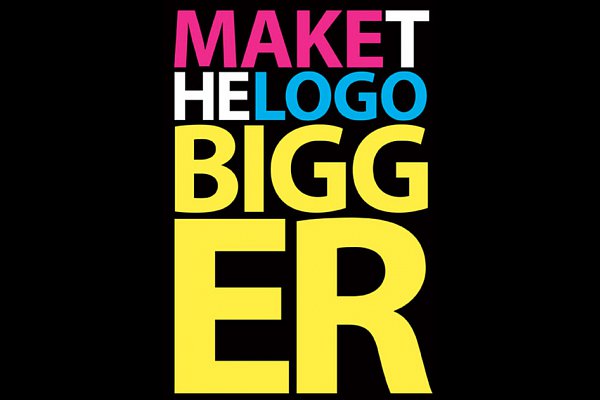There was a time when we would do just about anything to land a client. That included spending hours — often days — on creating elaborate responses to 20-page Requests for Proposal (oh, the dreaded RFP.) It also included creating free spec creative for projects that never materialized. I can honestly say that 0 percent of those endeavors actually turned into work for us.
The clients who have hired us, however, have also stuck with us — in some cases, for as long as eight years. So how should clients and agencies find each other? And when they do, what makes for a fruitful and happy working relationship? We believe mutual respect, clarity and the right chemistry have a lot to do with it — almost as much, in fact, as the caliber of creative work being produced.
In this week’s post, we thought we take a look at the qualities businesses should look for in their agencies, based on our experience and successful professional partnerships with our own clients.
Rip up the RFP
We can’t imagine how much time it takes for a business to put together a Request for Proposal. We can only assume — based on the amount of hours it takes to respond to one — an awful lot. We’d be willing to bet you have better things to do that create RFPs. And there are better ways of assessing the capabilities, experience, and quality of an agency.
Next time you’re evaluating agencies for a project or campaign, start with one simple request: To see the work they’ve actually done for other clients. Ask to see samples of their best projects across a wide range of mediums — print and digital, long-form and short. The proof is, after all, in the pudding. Or in this case, their portfolio.
Don’t be too focused on one industry
Potential clients we’ve talked with often want to see work we’ve done in their particular space, whether it be healthcare or education or retail or whatever. While industry-specific experience can be valuable, we think quality of work as well as ability to listen and learn are much more important.
If you’re considering an agency whose creative work you love, and who seems smart enough to get it, don’t discount them because they aren’t familiar with your industry. In fact, you may benefit from a fresh perspective. Hiring creative “outsiders” can be an effective way to avoid cookie-cutter work that looks like everything your competitors are producing.
Talk to them
You can tell a lot about an individual’s or team’s work ethic, approach, experience, and abilities simply by talking to them — more so than by reading a canned written response to an RFP. Set up a meeting, but think of it as more of a conversation. Person-to-person is ideal, but you can get a good sense of someone over the phone too.
Ask questions: about their creative philosophy, how they like to work with clients, how their team members work together, what their process is for getting from concept to delivered piece. Pay just as much attention to the questions they ask you. Do they seem curious? Astute? Like they know what they’re talking about? Like they enjoy what they do?
During the conversation, ask yourself whether you genuinely like them. Can you see yourself working with these people not just on the immediate project but for the long haul? Do you get the impression they’ll handle feedback well, will be open to your ideas, and are willing and able to adapt to changes and curve balls? Will they be easy to work with? Or do you sense some creative egos that might get in the way?
We’re strong believers that liking your agency and their team is just as important as liking the work that they do. So go with your gut.
Talk to their clients
Good agencies worth their creative mettle will have a list of client references ready to share with you, and will happily invite you to contact any of them. Talking to their current clients is a simple and reliable way to vet a potential agency — rather than just taking the agency’s own word when it comes to how great they are.
When you talk to their current clients, ask if the agency meets their deadlines. Find out if they tend to over-promise and under-deliver, or the other way around. Above all, ask if the client enjoys working with the agency, then find out why.
Big fish or little fish
Speaking of clients, find out how many active accounts the agency currently services, and how large those accounts are. If they’re juggling multiple clients and projects, ask if the agency will be able to ramp up their talent to meet your needs.
Be wary of agencies that have too much going on, or who are distracted by larger clients with recognizable names. Remember it’s better to be a big fish in a small pond than vice versa.
Seek out problem-solvers
A lot of agencies create beautiful work. But not all agencies are great at problem solving — especially when projects don’t go as planned (which they often don’t). Ask the agency to tell you about a particularly difficult project they worked on, and how they approached and resolved it. You’ll be able to tell from their response whether they enjoy a good challenge or prefer to avoid them.
Take a look at the whole team
Find out exactly who you’ll be getting to work on your project or campaign. And how many layers of project managers and account executives you’ll have to wade through to get what you need.
We find that agencies who give you direct access to creative and art directors tend to have the quickest response times and more accurately reflect your feedback. When your input goes through the filter of too many people, it can often get contorted or watered down. In our experience, account executives can sometimes be quick to promise clients the world (“Oh sure, we can do that, no problem”) when in reality there may be some limitations. Speaking directly to the creative team allows you to hear from the horse’s mouth whether a request can and should be met, as well as alternative solutions.
That being said, make sure there’s one designated person who can act as your go-to for all requests, questions, feedback, and concerns. Make sure that person has high availability and responds quickly.
Don’t pay for their office Hoverboards
Increasing numbers of businesses are opting to go with virtual agencies or creative collectives. And for good reason. First and foremost: In a virtual-agency set-up, each team member works remotely from their own workspace. In other words, no fancy office with all the trappings that have nothing to do with your project (i.e. ping pong tables and brainstorming rooms filled with bean bags). This cuts down on agency overhead, which in turn means they can price their work more competitively.
Secondly, virtual agencies have the flexibility to assign only the talent that’s needed to complete your project. Which means you won’t be paying for a phalanx of junior designers when all you really need is one or two good ones. There are many more advantages to using a virtual agency, but that’s for another post.
Parting thoughts
Choosing the right agency to partner with is important. But it doesn’t have to be a time-suck. In fact, it should be kind of fun. If you want to know whether a creative firm is right for you, talk to them. Look at their work. Speak with their current clients. And above all else, trust your instincts. After all, they’ve gotten you this far, right?
Whether you’re actively looking for an agency or not, we’d love to talk with you. Drop us a line, or check us out on Facebook, Twitter, or LinkedIn.


